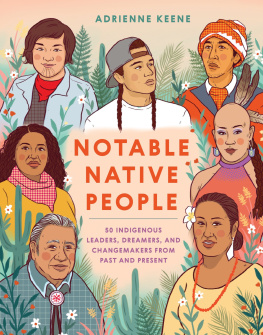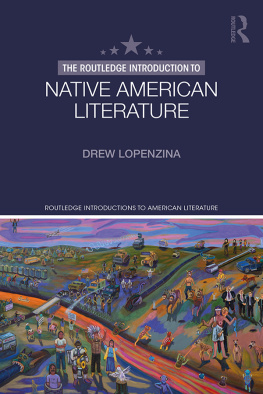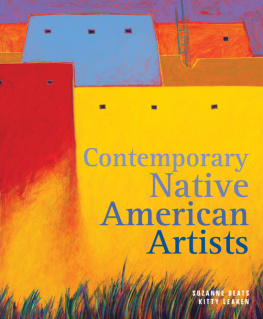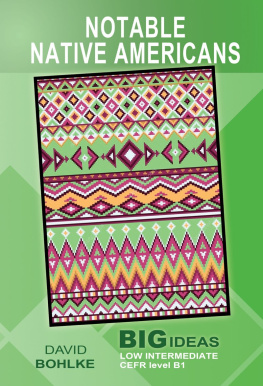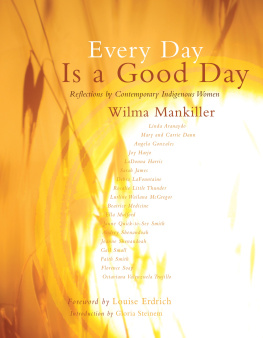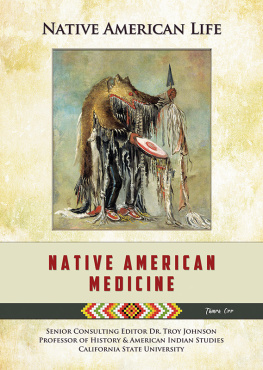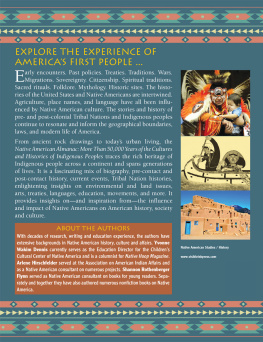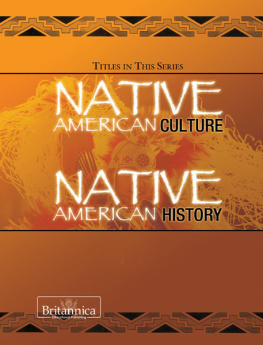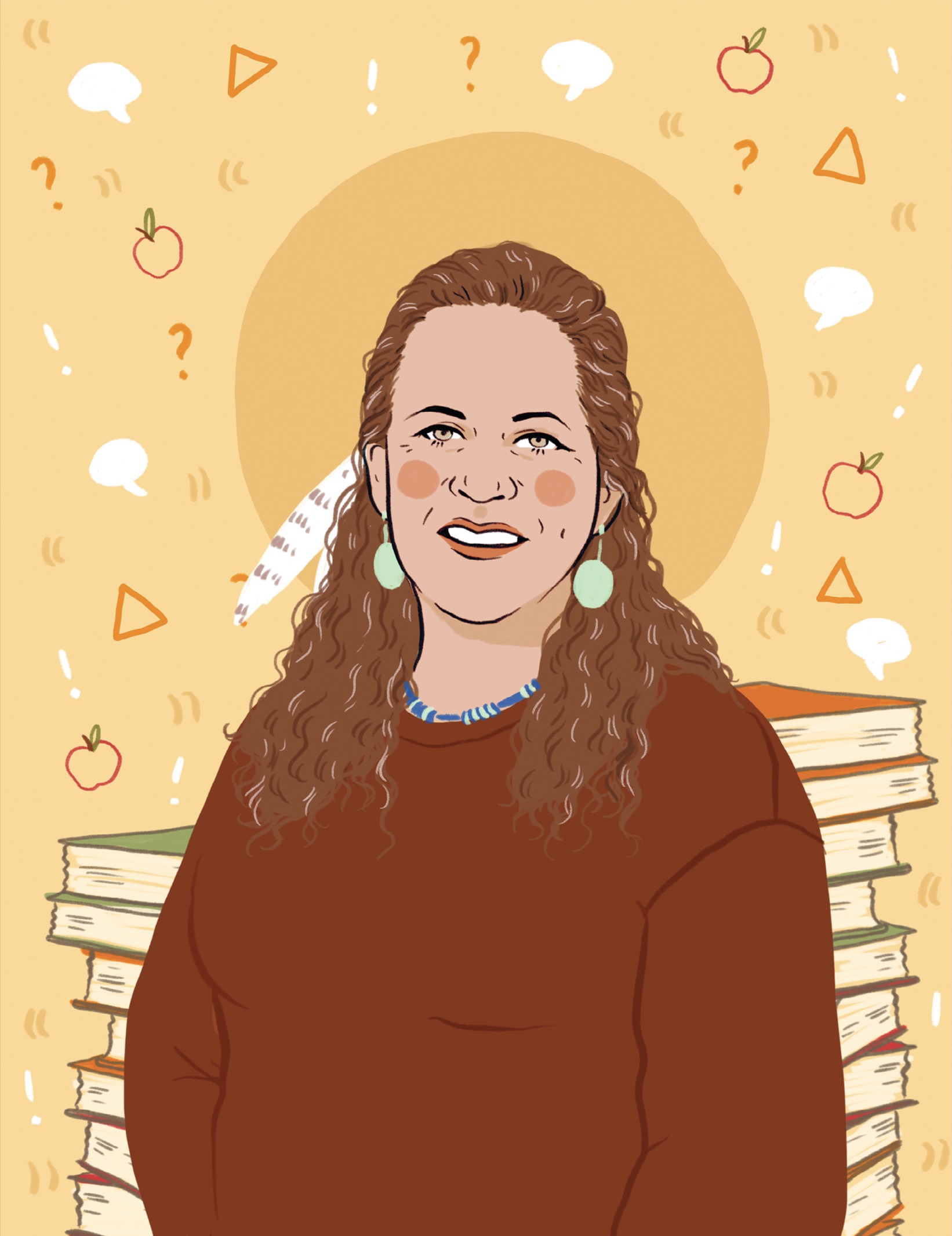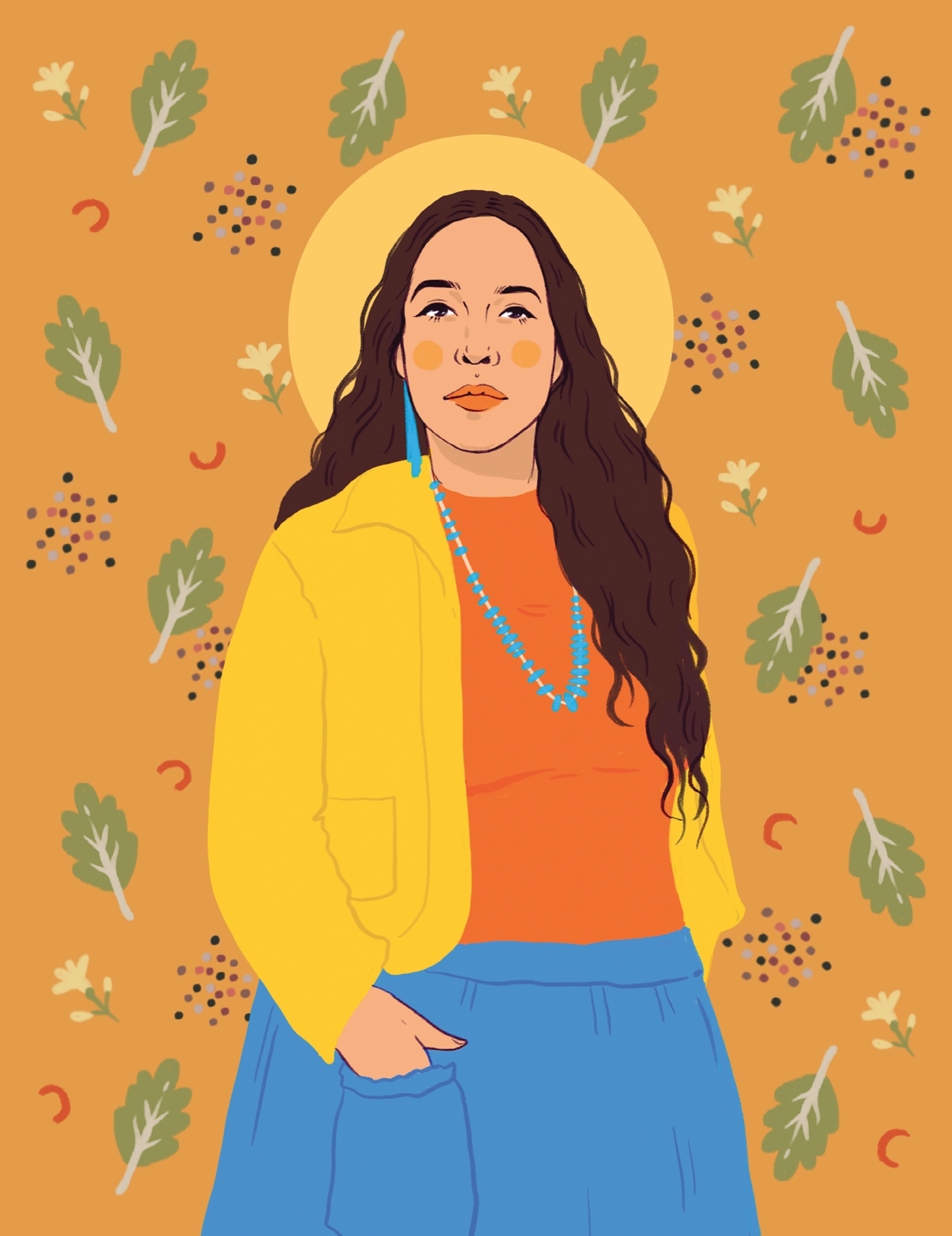Contents
Landmarks
Print Page List
Acknowledgments
As with everything I do as a Cherokee person, this book was completed through my web of relationships, and I could not have done it alone. Wado (thank you) with all my heart to my amazing editor, Kaitlin Ketchum, and the many people at Ten Speed PressLizzie Allen, Kimmy Tejasindhu, Want Chyi, and Serena Sigonawho assisted with all levels of the project; my agent, Alia Hanna Habib; Ciara Sana for her incredible art and her deep care with her work; and my amazing research assistants Isabella Robbins, Raelee Fourkiller, and Anne Fosberg.
Wado to all of the folks who nominated and suggested individuals for the book, including Kelly OBrien and Breylan Martin, who helped with Alaska; Makana Kushi and Jamaica Osorio, who helped with Hawaii; my Instagram family and community who provided so many names; and Indigenous Goddess Gangs archive of Matriarch Mondays and Woman Crush Wednesdays that gave me ideas and directed me to historic women. Wado to my writing and life support crew: Eve Ewing, Elena Shih, Elizabeth Hoover, Monica Ng, Mikaela Crank, Amanda Tachine, Tim San Pedro, Clint Smith, Christina Villarreal, Jennifer Weston, Matika Wilbur, Teo Shantz, and Kira Keenan. Also wado to the untz team: Annie Ta, Lakshmi Alagappan, Megan Stacy, Charlotte Helvestine, Elena Griego, Carling Nguyen, Jenny Zhao, Kate Hanlon, and Alicia Dennis. Of course, wado to my forever supportive parents, Jim and Pat Keene; my sister, Michele Keene; my chiweenie, Mochi Nuna; and all of my ancestors who fought so hard for me to be here. I also want to acknowledge and thank all of the leaders, dreamers, and changemakers included in the book for their inspiring work and lives, as well as the thousands and thousands more who didnt make it into these pages but could have: Youve shown me that the Indigenous past, present, and future are beautiful and bright.
About the Author
Adrienne Keene is a citizen of the Cherokee Nation and originally from Southern California. She is a scholar, writer, and podcaster whose work focuses on representations of Native people in popular culture, as well as Indigenous students in higher education. She is the longtime author and editor of Native Appropriations, a blog about cultural appropriation, and the co-founder and co-host of the podcast All My Relations, which examines Indigenous relationships and asks how we can be good relatives to one another, the land, and our nonhuman relations. You can find her online at nativeappropriations.com or adriennekeene.com, or on social media @NativeApprops.
About the Illustrator
ciara sana is a Chamoru artist currently based in Bellingham, Washington, but grew up in Guam, where she was surrounded by a mix of Indigenous Chamoru culture and people from all over the Pacific islands, Asia, and the U.S. mainland. Ciaras art is deeply rooted in her culture and inspired by all the different styles and flavors found on the beautiful island. The goal of her work is to empower and uplift others, celebrate differences, and encourage love. You can find her online at artbyciara.com and on Instagram @artbyciara.
jessie little doe baird
Mashpee Wampanoag
1963 Linguist and Language Revitalization Advocate
When jessie little doe baird was a young woman, she began having dreams of her ancestors speaking to her in a language she couldnt understand. jessie is a citizen of the Mashpee Wampanoag nation, which is the nation that met the Mayflower in 1620, when it landed on the shores of their homelands in present day Massachusetts. When jessie was born in 1963, Wpanak, the Wampanoag language, had not been spoken for 150 years. But her dreams of a language spoken by her ancestors were the first step on a journey to reclaim her peoples language and bring it back to life.
When she began her language work in the early 1990s, jessie was a mother of five and a social worker living in her homelands on Cape Cod in Massachusetts. She had no prior linguistic training, but she felt strongly that the work needed to be done by a Wampanoag person. Working with renowned linguist Kenneth Hale at the Massachusetts Institute of Technology (MIT), jessie painstakingly reconstructed spoken Wpanak. They used thousands of historic documents written in Wpanak, including the first Bible printed in North America, and paired them with pronunciations and grammatical tools from other related Native languages. After graduating with a masters degree in linguistics in 2000, she launched the Wampanoag dictionary project, solidified Wpanak grammar, and began teaching the language to members of her Mashpee Wampanoag community. In doing so, she ignited a language renaissance for her entire nation.
In 2010, she was awarded a MacArthur Foundation Fellowship (often referred to as the Genius Grant) for her work, and now, decades after her first dream, a growing group of children speak the language of their ancestors at Weetumuw Katnuhthtkamuq (The Weetumuw School), a Wpanak language immersion school. In a magazine interview, jessie said, Learning our language gives us a basis for why we view the world the way we do. Wampanoag is something that no one can take from us.
Rowen White
Akwesasne Mohawk
1979 Seed keeper
Rowen White is a seed keeper from the Mohawk community of Akwesasne. She has been a passionate activist for seed sovereigntythe right of communities to control and protect their own seedssince 1997, when she was a student at Hampshire College, which has a working farm. It was there that she realized that seeds have stories, and when she began to see seeds as relatives and connections to our ancestors. Seed keeping is the ancient practice of saving seeds from plants for future use, and it is especially meaningful for many Indigenous people for sovereign and spiritual reasons. Many crops that Native people carefully cultivated and relied upon for centuries were lost or nearly lost during colonization, when settlers purposefully destroyed Indigenous food systems. Seed keepers and advocates like Rowen work to save, catalog, distribute, and educate about Native seeds, and as a result, Indigenous crops are now thriving in backyards, farms, and homelands throughout the world. Local cooperatives like the Sierra Seeds collective in Northern California, which Rowen co-founded in the early 2000s, work to educate and continue seed production. Rowen offers seed trainings around the country as the project coordinator for the Indigenous Seed Keepers Network.
Indigenous foods have the power to improve Native peoples health and can increase our connections to land, cultural knowledge, and ancestors. The work of seed keepers like Rowen is making sure that seed keeping practices that have survived for thousands of years carry forward into the future. As Rowen writes of our seed relatives: Following this diverse trail of seed and stories, I have come to understand more about myself, my ancestral roots, and have received the blessing to carry and keep dozens of unique heritage seeds in our baskets and bundles for our family to be nourished and to pass along to future generations. I have come here to deeply listen to what the seeds have to share.

